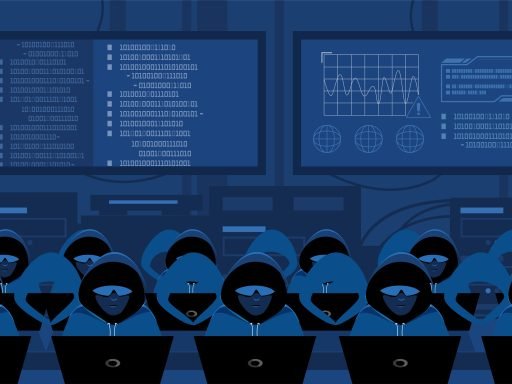Introduction
Cybersecurity certifications are crucial for validating your skills, advancing your career, and increasing your earning potential. However, with so many options available, choosing the right certification can be challenging. This guide compares some of the most popular cybersecurity certifications, including CISSP, CEH, CompTIA Security+, and Offensive Security certifications like OSCP, to help you make an informed decision based on your career goals, experience level, and professional interests.
Why Certifications Matter in Cybersecurity
In the competitive field of cybersecurity, certifications serve as benchmarks of expertise and credibility. They not only enhance your resume but also demonstrate your commitment to staying current with the latest security practices. Certifications can open doors to new job opportunities, promotions, and higher salaries. They are also often required or highly preferred by employers when filling cybersecurity roles.
Comparing Top Cybersecurity Certifications
1. Certified Information Systems Security Professional (CISSP)
- Overview: CISSP is one of the most respected certifications in the cybersecurity industry, recognized globally as a standard of excellence. It covers a wide range of security topics, making it ideal for professionals looking to advance into leadership roles.
- Career Benefits: CISSP is highly valued by employers and often required for senior positions such as Security Manager, Security Consultant, and Chief Information Security Officer (CISO).
- Difficulty Level: Advanced. CISSP is challenging and typically requires several years of experience in the field. The exam covers eight domains of cybersecurity, including security and risk management, asset security, and software development security.
- Who It’s For: Experienced cybersecurity professionals aiming for leadership or specialized roles.
2. Certified Ethical Hacker (CEH)
- Overview: CEH focuses on ethical hacking and penetration testing, providing professionals with the skills to identify and exploit vulnerabilities legally. The certification teaches you to think and act like a hacker to protect systems from attacks.
- Career Benefits: CEH is ideal for roles such as Penetration Tester, Ethical Hacker, and Security Analyst. It’s a valuable certification for those interested in offensive security.
- Difficulty Level: Intermediate. While not as challenging as CISSP, CEH requires a solid understanding of networks, systems, and cybersecurity principles. The exam tests knowledge of hacking techniques, tools, and countermeasures.
- Who It’s For: Professionals interested in ethical hacking and penetration testing.
3. CompTIA Security+
- Overview: CompTIA Security+ is an entry-level certification that provides a strong foundation in cybersecurity principles. It covers network security, threats and vulnerabilities, identity management, and cryptography.
- Career Benefits: Security+ is often a stepping stone to more advanced certifications and is suitable for roles such as Security Specialist, Network Administrator, and IT Auditor.
- Difficulty Level: Beginner to Intermediate. Security+ is accessible to those new to cybersecurity but still covers a broad range of essential topics. It’s a good starting point for anyone looking to enter the field.
- Who It’s For: Individuals new to cybersecurity or IT professionals looking to transition into security roles.
4. Offensive Security Certified Professional (OSCP)
- Overview: OSCP is one of the most respected certifications for penetration testers and ethical hackers. It emphasizes hands-on skills through a rigorous 24-hour exam where candidates must demonstrate their ability to compromise a series of machines.
- Career Benefits: OSCP is highly regarded by employers and is often required for roles such as Penetration Tester, Red Team Member, and Security Consultant. The practical nature of the certification makes it a strong indicator of a candidate’s real-world hacking abilities.
- Difficulty Level: Advanced. OSCP is known for its difficulty, requiring a deep understanding of offensive security techniques and the ability to apply them in real-time scenarios.
- Who It’s For: Professionals serious about a career in penetration testing and those who want to prove their hands-on hacking skills.
5. Offensive Security Certified Expert (OSCE)
- Overview: OSCE is an advanced certification offered by Offensive Security that focuses on advanced penetration testing techniques, particularly exploit development and network pivoting.
- Career Benefits: OSCE holders are recognized for their advanced offensive security skills and are suitable for roles in advanced red teaming, exploit development, and highly specialized penetration testing.
- Difficulty Level: Very Advanced. OSCE is one of the most challenging certifications, requiring deep technical expertise and experience in security exploitation.
- Who It’s For: Highly experienced penetration testers and security professionals aiming to specialize in advanced offensive security techniques.
Additional Certifications to Consider
- Certified Information Security Manager (CISM): Ideal for professionals focusing on information security management. It’s well-suited for those looking to align security with business goals.
- Certified Cloud Security Professional (CCSP): Focuses on cloud security, making it perfect for professionals working with cloud technologies.
- Offensive Security Wireless Professional (OSWP): Focuses on wireless network security and is valuable for those interested in wireless penetration testing.
Which Certification is Right for You?
Choosing the right certification depends on your current experience level, career goals, and interests within the field of cybersecurity.
- For Beginners: CompTIA Security+ is a great entry point, offering foundational knowledge that can lead to more specialized certifications.
- For Intermediate Professionals: CEH is suitable for those looking to delve into ethical hacking and hands-on penetration testing roles.
- For Advanced Professionals: CISSP is ideal for those aiming for senior leadership positions, while OSCP is perfect for those focused on offensive security and penetration testing.
Conclusion
Cybersecurity certifications are essential tools for advancing your career, but selecting the right one requires careful consideration of your career stage and goals. Whether you’re just starting out or are an experienced professional looking to specialize, there’s a certification that can help you reach the next level. By aligning your certification choice with your career objectives, you can maximize your potential in the cybersecurity field and stay ahead in this ever-evolving industry.












